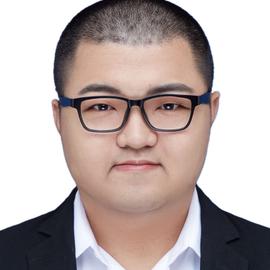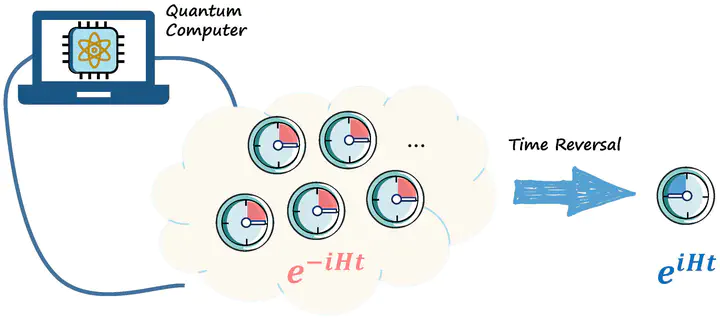Abstract
We introduce the Quantum Unitary Reversal Algorithm (QURA), a deterministic and exact approach to universally reverse arbitrary unknown unitary transformations using calls of the unitary, where is the system dimension. Our construction resolves a fundamental problem of time-reversal simulations for closed quantum systems by affirming the feasibility of reversing any unitary evolution without knowing the exact process. The algorithm also provides the construction of a key oracle for unitary inversion in quantum algorithm frameworks such as quantum singular value transformation. Notably, our work demonstrates that compared with classical methods relying on process tomography, reversing an unknown unitary on a quantum computer holds a quadratic quantum advantage in computation complexity. QURA ensures an exact unitary inversion while the classical counterpart can never achieve exact inversion using a finite number of unitary calls.
Publication
arXiv:2403.04704

Research Associate
I obtained my BS in Mathematics and Applied Mathematics from University of Science and Technology of China. I obtained my PhD degree in Applied Mathematics from University of Chinese Academy of Sciences under the supervision of Prof. Xiao-Shan Gao. My research interests include quantum computing, symbolic computation and cryptanalysis.

Research Associate
I obtained my BS in Fundamental Science in Physics and Mathematics from Tsinghua University. I obtained my PhD degree in Computer Science from the University of Hong Kong. My research interests include quantum information theory, quantum supermaps and quantum machine learning.

PhD Student (2023)
I obtained my BMath in AMath, CO & joint PMath from the University of Waterloo. My research interests include quantum information theory and quantum machine learning.

Associate Professor
Prof. Xin Wang founded the QuAIR lab at HKUST(Guangzhou) in June 2023. His research primarily focuses on better understanding the limits of information processing with quantum systems and the power of quantum artificial intelligence. Prior to establishing the QuAIR lab, Prof. Wang was a Staff Researcher at the Institute for Quantum Computing at Baidu Research, where he concentrated on quantum computing research and the development of the Baidu Quantum Platform. Notably, he spearheaded the development of Paddle Quantum, a Python library designed for quantum machine learning. From 2018 to 2019, Prof. Wang held the position of Hartree Postdoctoral Fellow at the Joint Center for Quantum Information and Computer Science (QuICS) at the University of Maryland, College Park. He earned his doctorate in quantum information from the University of Technology Sydney in 2018, under the guidance of Prof. Runyao Duan and Prof. Andreas Winter. In 2014, Prof. Wang obtained his B.S. in mathematics (with Wu Yuzhang Honor) from Sichuan University.
 Reversing an unknown unitary with finite calls of the unitary evolution.
Reversing an unknown unitary with finite calls of the unitary evolution. Reversing an unknown unitary with finite calls of the unitary evolution.
Reversing an unknown unitary with finite calls of the unitary evolution.